You can listen to the article. If it's more convenient for you, turn on the podcast:
Mental endurance is the ability to concentrate on complex mental tasks for a long time. It is necessary for the productive study of new skills, long-term intellectual work or scientific activity.
Low endurance leads to the fact that a person is constantly distracted and procrastinating, postponing things for later or even giving up when faced with an obstacle on the way to the goal. To work effectively, mental endurance needs to be improved. Here are five ways to do this.
It happens that the upcoming mental activity scares us. When you don't want to learn questions for a difficult exam, write a scientific paper, solve a complicated work question, and so on. Over time, stress accumulates from the need to get down to business sooner or later. When we finally start work, the tension is released — and we panic.
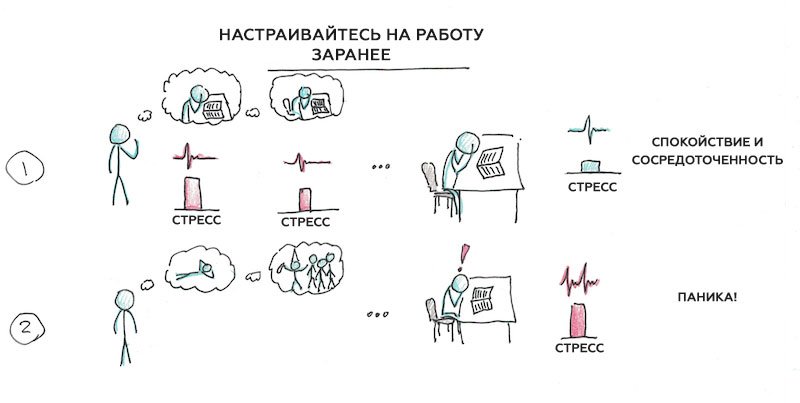
This outcome can be avoided. Imagine in advance how you will sit down and take up the tasks you have planned. Make an approximate plan of action.
Perhaps it will cause you stress — this is normal. If you experience tension during the "rehearsals", then during the activity itself you will be much calmer. And more productive — because you will not be constrained by fear.
When we encounter a problem during mental work, we often want to distract ourselves, check social networks, watch TV — in general, procrastinate. This is how our nervous system works: she treats every obstacle as a threat and immediately turns on the instinct of flight.
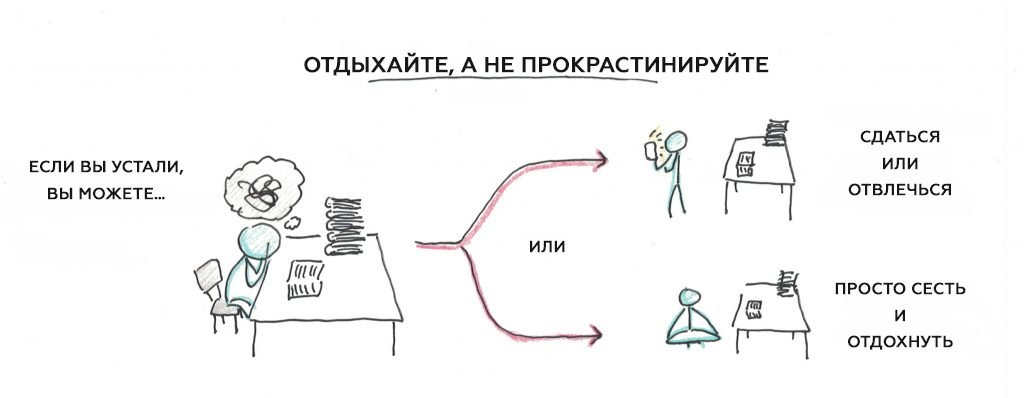
But procrastination doesn't solve the problem. This is a waste of time, which only increases stress. Therefore, in such cases it is better to just relax instead of burying your face in the phone.
Sit down and mentally disconnect from the problem. Don't do anything for a few minutes. When you feel that you are ready, get down to business again — you will have new strength and, quite likely, a solution for the problem will come.
Our motivation depends on the cycles of action and reward. When we make an effort and get something pleasant, the desire to do something grows. But the opposite is also true: if we do not receive rewards, then motivation disappears.
This also applies to mental activity. Many people, when faced with an obstacle while working, feel panic. And after overcoming it — fatigue. This is very demotivating — you have to fight with yourself not to quit the case.
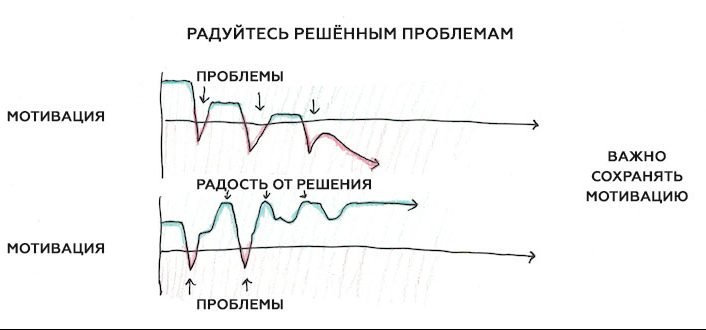
In order for problems not to kill motivation, you need to choose the right tasks and focus less on success. Try to build your work in such a way that there are always surmountable obstacles in front of you, for example, similar to those you have encountered before.
And don't think about how many tasks still have to be completed before the case is completed. Concentrate on what you are doing at the moment. This will help you feel joy and pride that everything is working out for you.
The classic scheme of working on a project that everyone has followed at least once: first, act relaxed and procrastinate, because there is a lot of time, and towards the end, hurry up and finish everything in a panic, sacrificing sleep and free time.
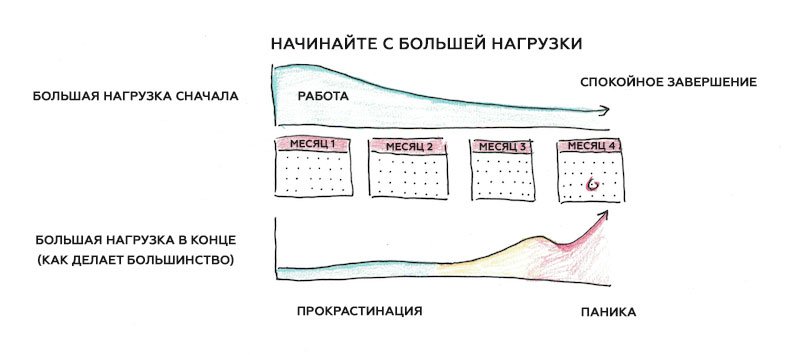
A lot of people do this, although this method is very harmful to the emotional and physical state of a person. It is much more logical to do the opposite: to do most of the work at the beginning, so that at the end, when the forces become less, there are not so many tasks.
It would seem that you can do more in a whole working day than in a few hours. But in fact, for many people, this is not so — all because of procrastination. The constant desire to distract interferes with productivity and contributes to the appearance of stress. After all, minutes and hours go by, but there is no progress.
And this problem cannot be solved by increasing the time allotted for work. This will only lead to more procrastination. You need to do the opposite: limit yourself to a few hours and try to be as effective as possible during this time.
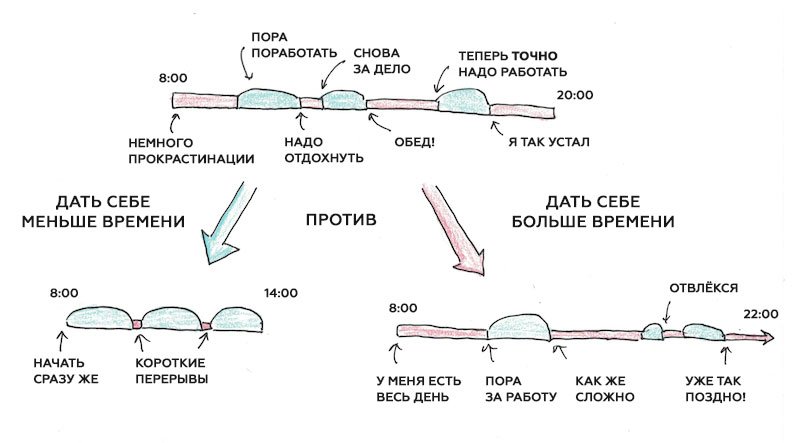
This option is much better than working with varying success all day. If procrastination still breaks through, reduce the time. Don't be afraid not to make it: if you don't manage to do everything in 4-5 hours of focused work, then most likely it won't work out in a day.